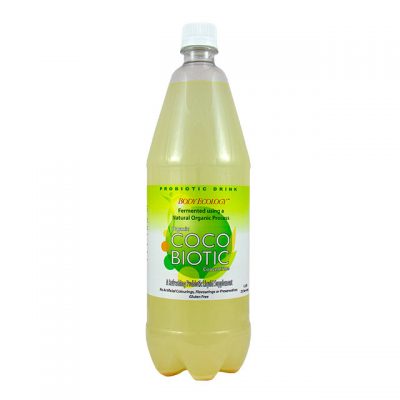Various terms used in research and discussion of lactobacillus prepared or processed foods.
acidophiline: metabolite produced by starter organisms during fermentation, exhibits antibacterial properties.
acidophilus milk: acidophilus milk is a sour milk in which L. acidophilus is the fermenting organism.
autointoxication: process by which harmful microbes in the intestine cause disease.
bioavailability of nutrients: the efficiency of absorption and utilisation or retention of the nutrients that are present in food.
carbohydrates: various types of sugar, starch, and dietary fibers.
digestion: (1) the process of reducing large food molecules into simpler compounds and, thereby, making it possible for them to be absorbed from the digestive tract into the bloodstream. (2) splitting food molecules.
enzymes: chemical compounds, made by cells, which are responsible for chemical reactions carried on by those cells.
fermentation: (1) derived from the Latin verb fervere, to boil, thus describing the appearance of the action of yeast on extracts of fruit or malted grain. The boiling appearance is due to the production of carbon dioxide bubbles caused by the anaerobic catabolism of the sugars present in the extract. (2) the chemical breakdown of carbohydrates (sugar, starch, and fiber) by intestinal microbes resulting in the production of hydrogen gas, carbon dioxide gas, and various other products such as lactic acid, acetic acid and alcohol.
intestinal flora: the various bacteria, yeast, and other microscopic forms of life in the intestinal contents.
lumen: interior space of intestine.
microvilli: fingerlike projections normally present on individual intestinal absorptive cells; normally, digestive enzymes are embedded within microvilli but, in many conditions, microvilli disappear along with their digestive enzymes.
mucosa: the lining of the intestinal tract which is formed by the intestinal cells and which comes in contact with the contents of the intestinal tract.
nisin: metabolite produced by starter organisms during fermentation, exhibits antibacterial properties.
nutrition: encompasses the provision of calories/energy, protein, essential amino acids/peptides, essential fatty acids, vitamins, and minerals via foods.
peristalsis: involuntary waves of muscular contraction and relaxation which propel the contents of the intestine forward.
probiotic: a live microbial feed which beneficially affects the host animal by improving its intestinal microbial balance.
putrefaction: the chemical breakdown of proteins by intestinal microbes resulting in the formation of ammonia and other substances.
refined carbohydrate: a carbohydrate such as cornstarch or white sugar which has been separated from substances with which it is normally associated in the natural or whole state. Refined carbohydrates usually have their calories left intact but have lost most, if not all, of the fiber, vitamins, and minerals found in the whole foods from which they have been extracted.
villi: fingerlike projections (forming hills and valleys) which normally make up the absorptive surface of the small intestine; they become flattened in various conditions.
vitamins: substances present in small amounts in natural foodstuffs (or supplements) which are essential for cellular function and the lack of which in the diet results in disease. The cells, with minor exceptions, cannot make vitamins.
References
- Douglas, Loudon, M. 1911. The Bacillus of Long Life. WC; Edinburgh: T.C. & E.C. Jack.
- Fuller, R. 1989. Probiotics in man and animals. J. Appl. Bacteriol. 66:365-378.
- Gottschall, Elaine. 1994. Breaking the Vicious Cycle: Intestinal Health Through Diet. Kirkton Press Ltd., Ontario, Canada.
- Spedding, C.R.W. 1989. The Human Food Chain. London; New York: Elsevier Applied Science.
- Stanbury, P.F., Whitaker, A., Hall, S.J. 1995. Principles of Fermentation Technology. Oxford, U.K.; Tarrytown, N.Y., U.S.A.: Pergamon, 2nd ed.
- Steinkraus, Keith, H. 1996. Indigenous Fermented Foods. Marcel Dekker, Inc. NY.
- Subcommittee on Nutrition and Diarrheal Diseases Control, Subcommittee on Diet, Physical Activity, and Pregnancy Outcome, Committee on International Nutrition Programs, Food and Nutrition Board, Institute of Medicine. 1992. Nutrition Issues in Developing Countries. Washington, D.C.: National Academy Press.
- Zeffertt, Wendy. 1999. Cultured Foods. Hyland House Publishing Pty. Ltd.




